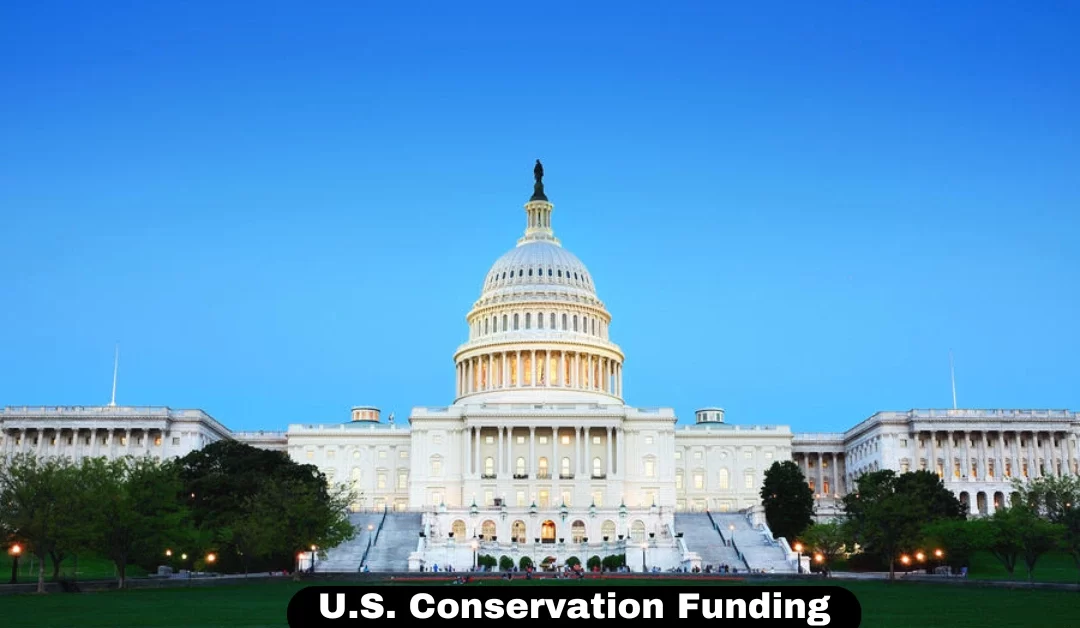The United States is facing an urgent need to act on environmental conservation. No matter who leads the government, the priority should remain to protect nature and address major environmental threats. The World Wildlife Fund (WWF) has emphasized the importance of continuing and expanding efforts to conserve wildlife, fight climate change, and promote sustainability. Below, we outline critical actions Congress can take to protect the environment.
Key Areas for Congressional Action
- Increase Conservation Funding
- Support the WILD Act: The Wildlife Innovation and Longevity Driver (WILD) Act should be approved by Congress to extend U.S. Fish and Wildlife Service programs for five more years. This would support initiatives that help protect animals such as elephants, rhinos, and sea turtles. This legislation has already passed both the House and Senate but awaits a final vote.
- Pass the US Foundation for International Conservation Act: This act would allow the U.S. to use government investments to attract matching private and philanthropic funds for global conservation. This law could increase funding for international conservation projects and strengthen America’s leadership in protecting nature.
- Protect Wildlife and Stop Illegal Trade
- Combat Illegal Fishing: Illegal, unreported, and unregulated (IUU) fishing poses a significant threat to ocean life and is often linked to human rights abuses. Congress should include provisions in the annual defense bill to help counter illegal fishing activities.
- Strengthen Laws Against Wildlife Crimes: The U.S. must enforce stricter laws to stop the illegal trade of wildlife and natural resources, which harms ecosystems and endangers species.
- Promote Sustainable Practices
- Improve Recycling and Reduce Plastic Waste: Congress should pass the Recycling and Composting Accountability Act and the Recycling Infrastructure and Accessibility Act. These bipartisan bills aim to improve the recycling system in the U.S., create a national composting plan, and support recycling projects in underserved areas.
- Renew the Farm Bill: The Farm Bill, which guides U.S. agricultural policies, is critical for promoting eco-friendly farming and reducing food waste. Congress needs to reauthorize this bill to support sustainable agriculture and help combat climate change.
- Advance Climate Action
- Promote Forest Conservation: Protecting forests is vital for managing climate change and preventing extreme weather. The New York legislature recently passed the Tropical Rainforest Economic & Environmental Sustainability (TREES) Act, which aims to stop deforestation by requiring state contractors to certify that their products do not contribute to tropical forest destruction. Other states should follow this example to ensure sustainable business practices.
- Support Nature in Climate Policies: Congress should integrate environmental conservation into broader climate policies to curb emissions and support sustainable land use.
Why Conservation Matters Now
The latest WWF reports reveal that wildlife populations have declined by 73% on average in recent decades. This alarming rate of loss affects biodiversity, disrupts ecosystems, and poses threats to human health and security. Without proper funding and policies, the U.S. risks contributing further to global environmental damage.
Global Leadership in Conservation
The U.S. has a long-standing role as a global leader in conservation efforts. By supporting international and local environmental initiatives, the U.S. can influence positive global change and build stronger diplomatic ties. Ensuring adequate funding and passing vital laws are essential steps for America to maintain its leadership role.
Challenges and Criticism
Some conservation and technology initiatives have faced criticism regarding how they might be implemented. However, the primary concern remains finding a balance between economic growth and environmental protection. Lawmakers need to recognize the urgency of acting responsibly and efficiently to safeguard the future of the planet.
By prioritizing the environment, the U.S. can secure a healthier planet, support sustainable development, and safeguard future generations. Congress must act quickly to pass key bills and allocate the necessary resources for environmental conservation.































